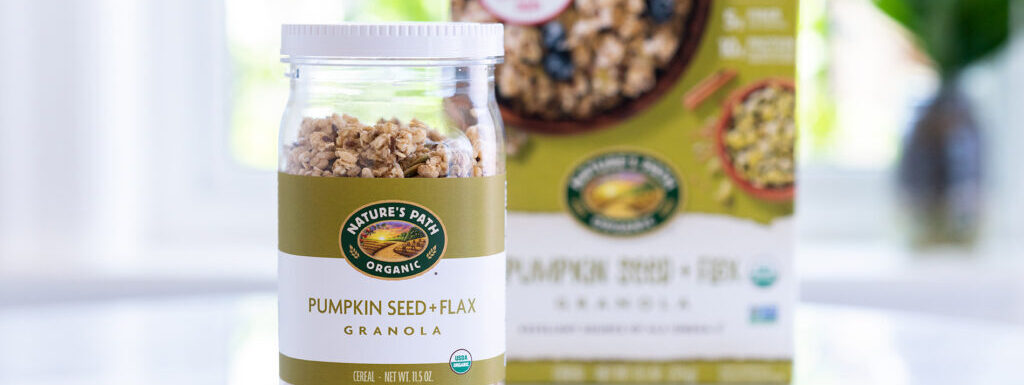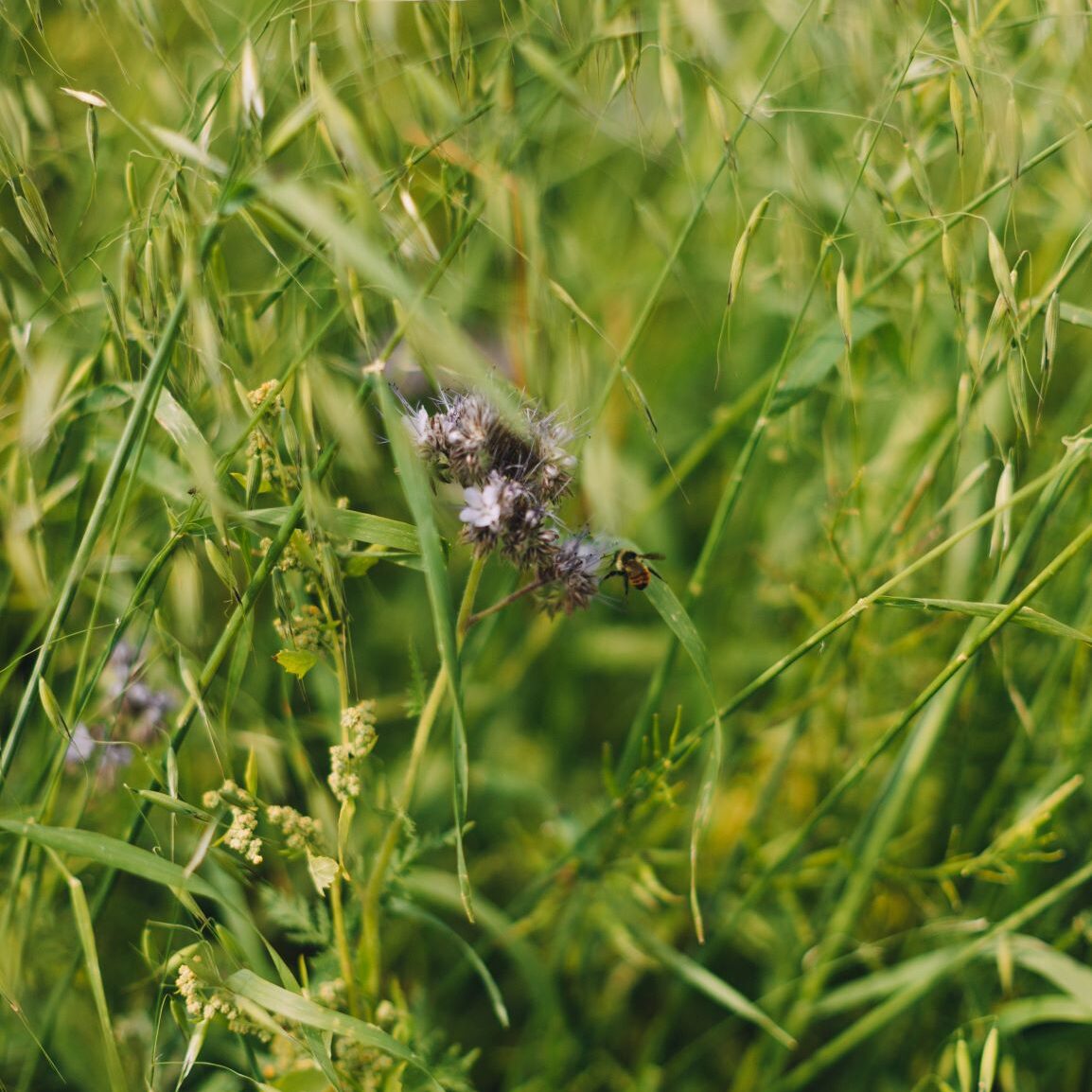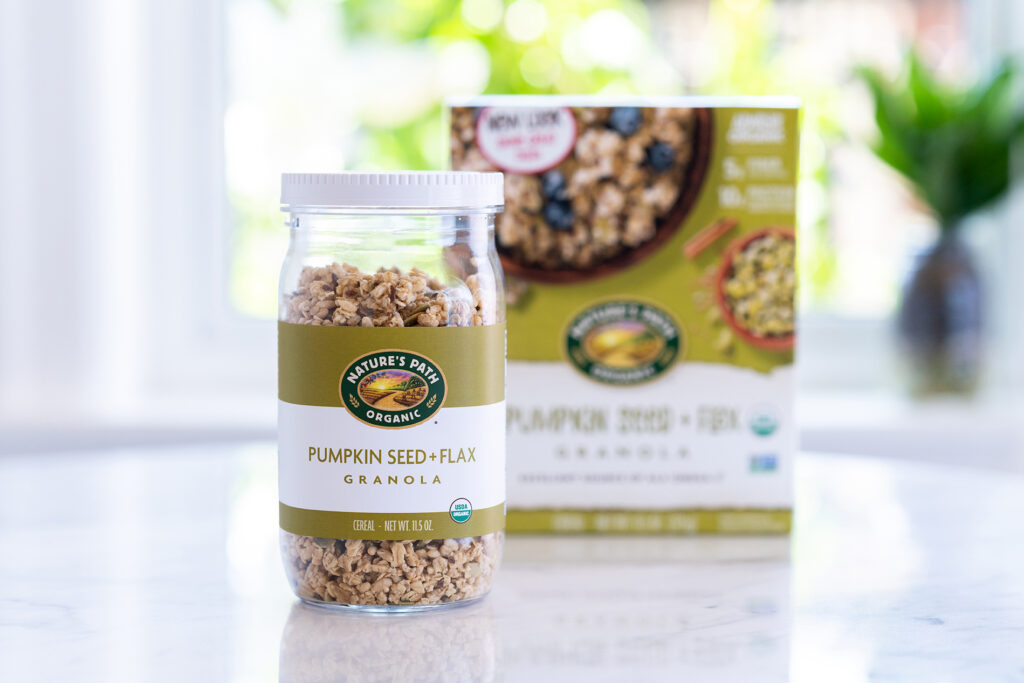How We’re Leaving the Earth Better Than We Found It

Going from what’s in the box, to the box itself, sustainability is involved in every aspect of our company.
I have always been planted in the soil. My dad grew up on a farm on Vancouver Island called Goldstream Berry Paradise. While many of the farms in the area had adopted the tools and promises of modern chemical agriculture, my grandfather, having been inspired by early organic farming pioneers, proudly displayed a sign that read “no sprays or poisons used.”
During the hot summers in the 1950s, my dad would work alongside his father, who told him to always leave the soil better than originally found. This advice resonated with me throughout my life, and has been translated into our purpose at Nature’s Path: “Always leave the Earth Better than we found it.” One of the key ways that we incorporate our purpose is through working on our supply chain to reduce negative environmental impacts and increase positive social impacts.
As a food company, everything starts with the soil; this is at the root of our commitment to source only organic foods. When Nature’s Path was founded, we were the first organic cereal manufacturer in North America. Today, we’re proud to be one of the largest.

Sourcing certified organic ingredients is one of the most significant green procurement strategies we can undertake. In 2019 alone, our purchases of certified organic food prevented over 500,000 tons of synthetic pesticides and over 18,000 tons of fossil-fuel-based fertilizers from being applied to farmland. In addition to the environmental benefits of organic farming, we believe that food that’s grown organically is better for you. There have been studies conducted on increased phytonutrient quality in organically grown food which supports this claim. Organic farming also helps protect farmers and farmworkers globally; a shocking 44% of farmworkers globally experiencing acute pesticide poisoning which can have long-term health impacts for farmers and their families. Additionally, eating organic food significantly reduces pesticides residues in the body that have been linked to a variety of health issues.
From that early commitment to respect our Earth and soil, we have expanded out our supply chain sustainability work to implement a broad code of conduct for our suppliers with additional requirements based on an environmental and social risk assessment. Implementing a code of conduct has allowed us to deepen our commitment to sustainable and ethical procurement by ensuring a broad commitment to supporting practices across our value chain. Our code of conduct was developed collaboratively with members of the Sustainable Food Trade Association (SFTA), a natural and organic peer group that works on issues focused on food system sustainability. Having an industry-developed code of conduct helped with broad adoption as it made it easier for suppliers to support a larger number of customers vs. each customer having different or competing interests. The broad areas of focus of our code of conduct include legal compliance, human rights, organic and quality compliance, farmworker support, environmental protection, and health and safety.
When a new supplier is on-boarded and for every two years following, we do a self-reported audit of practices. For ingredients or regions of the world where there are greater risks for fraud or compliance, we conduct on-the-ground visits to ensure farming, sustainability, and labour practices are aligned to our code of conduct. As we delve more into justice, equity, diversity, and inclusion work, we added new sections in the 2020 code of conduct to understand and benchmark the diversity of our supply chain.
For specific areas of our supply chain, we go beyond this commitment. We use palm oil in a few of our recipes and given the challenges around intensive deforestation and palm oil, we only purchase palm from South America that has been certified by the Roundtable on Sustainable Palm Oil. We also use cocoa and chocolate in several of our cereals and granolas. Because of child and slave labour challenges with cocoa, we’re proud to be the first company in Canada to require Fair-Trade certified cocoa for all of our cocoa.

Going from what’s in the box, to the box itself, sustainability is involved in every aspect of our company. We purchase 100% recycled Forest Stewardship Council certified paper board for our packaging with at least 60% post-consumer waste in our paperboard and up to 30% post-consumer waste in our corrugate, and use vegetable-based inks.
We’ve pledged to make all packaging either reusable, recyclable, or compostable by 2025 and we’ve 97% of the way there, by weight. To fully achieve this goal, we’re working on solutions on all fronts, including growing the number of package-free and bulk options we sell, trialling compostable film, and partnering with our suppliers on recyclable packaging. This year, we participated in the launch in Loop in Canada, a reusable packaging platform lead by Terracycle. We estimate that one reusable jar, over its life cycle will save more than 4 kilos (9 pounds) of waste generated from the same amount of bag-in-box granola.
We see our work as a journey; a journey that started on our family farm. Harkening back to the principles of organic farming, we will layer on our practices, building up the health of the earth so that life can continue to flourish for generations to come.
Jyoti is a member of the Canada’s Clean50 for 2021, and a finalist for the HP Canada Clean50 Award for Leadership in Sustainable Procurement

















